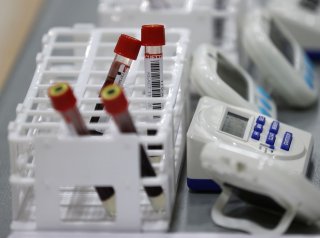Icelandic Study: Coronavirus Antibodies May Last for Four Months
The longer the antibodies last, the more protected people are.
Individuals appear to have antibodies for at least four months after they contract the novel coronavirus, according to a new study published in the New England Journal of Medicine.
This is considered positive news in the ongoing global effort to develop a viable coronavirus vaccine.
If a vaccine can stimulate production of long-lasting antibodies as natural infection seems to do, it offers hope that “immunity to this unpredictable and highly contagious virus may not be fleeting,” scientists from Harvard University and the U.S. National Institutes of Health wrote in a commentary published along with the study.
Other smaller studies previously suggested that antibodies may disappear more quickly, and that some infected individuals with few or no symptoms may not make many at all.
In arriving at the study’s conclusions, the researchers analyzed a massive dataset from Iceland to search for the presence of antibodies in more than 30,000 blood samples.
The samples came from three specific groups: those with confirmed coronavirus cases, those who had been exposed to the virus but weren’t infected, and those who had no known exposure.
The researchers then focused on a smaller subset of roughly 500 people who had undergone more than one antibody test—which allowed the study to gauge whether antibody levels remained stable or faded over time.
In this particular group, the researchers discovered that antibody levels rose in the first two months after diagnosis and remained stable for the next two months.
Not everyone, however, developed antibodies after infection, the authors wrote. This suggests that some individuals might have weaker immune responses to the virus, and it’s also possible that they had false-positive test results and were never sick to begin with.
Moreover, the study’s results don’t necessarily mean that every person will have this type of response.
Just last week, a twenty-five-year-old man from Reno, Nevada, became the first person in the United States to contract the novel coronavirus twice, according to a pre-print study.
A week before that, researchers in Hong Kong reported what appeared to be the world’s first confirmed case of coronavirus reinfection.
University of Hong Kong researchers were able to sequence the virus from the patient’s two infections and found that they did not match—indicating that the second infection was not related to the first.
The Icelandic study—conducted by Reykjavik-based deCODE Genetics, a subsidiary of the U.S. biotech company Amgen, along with several hospitals, universities, and health officials—also revealed several other interesting trends.
Antibody levels were found to be higher in older patients and in those with more severe disease. Women also had lower antibody levels compared to men, and smokers had lower levels than nonsmokers.
Ethen Kim Lieser is a Minneapolis-based Science and Tech Editor who has held posts at Google, The Korea Herald, Lincoln Journal Star, AsianWeek and Arirang TV. Follow or contact him on LinkedIn.
Image: Reuters

